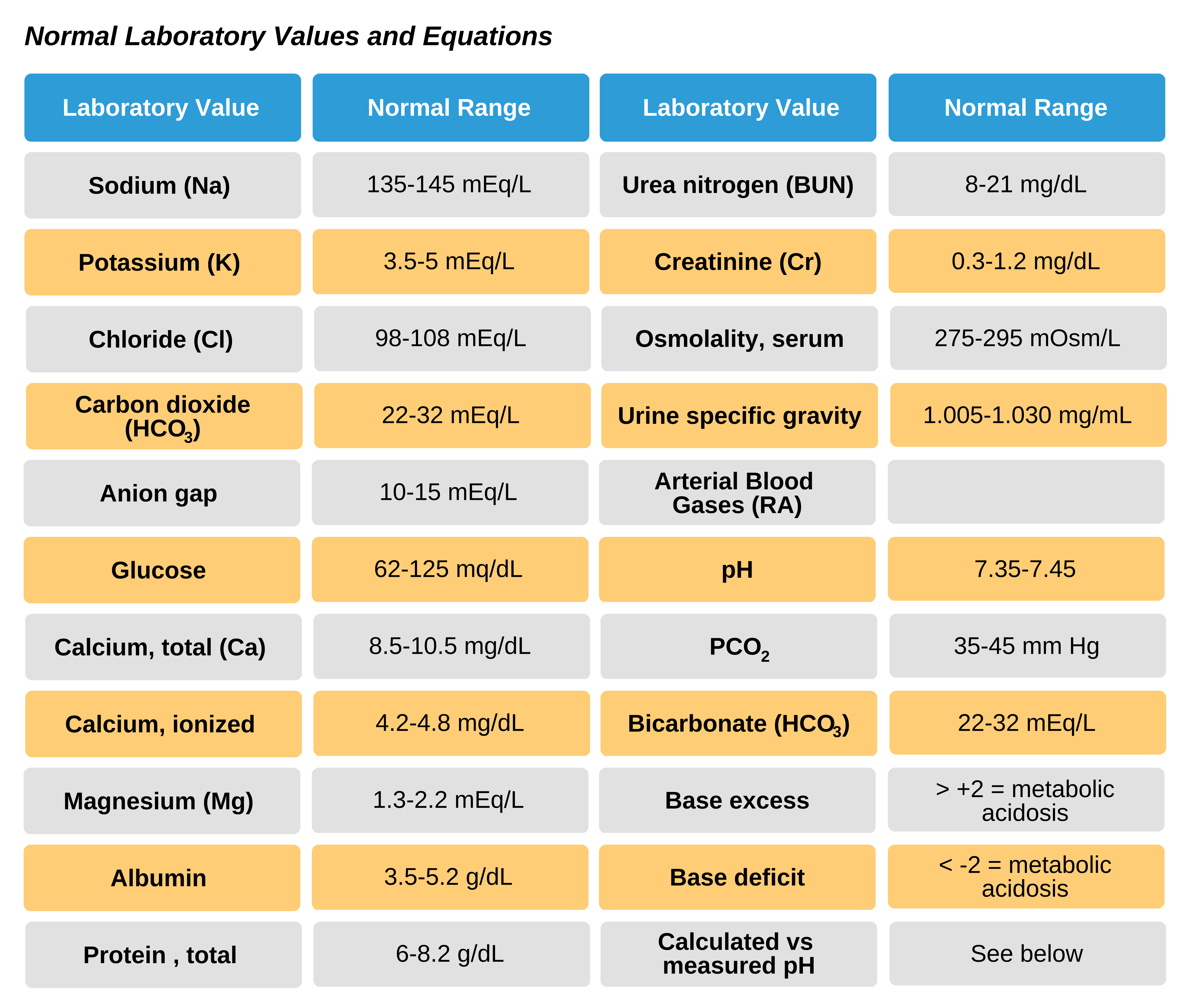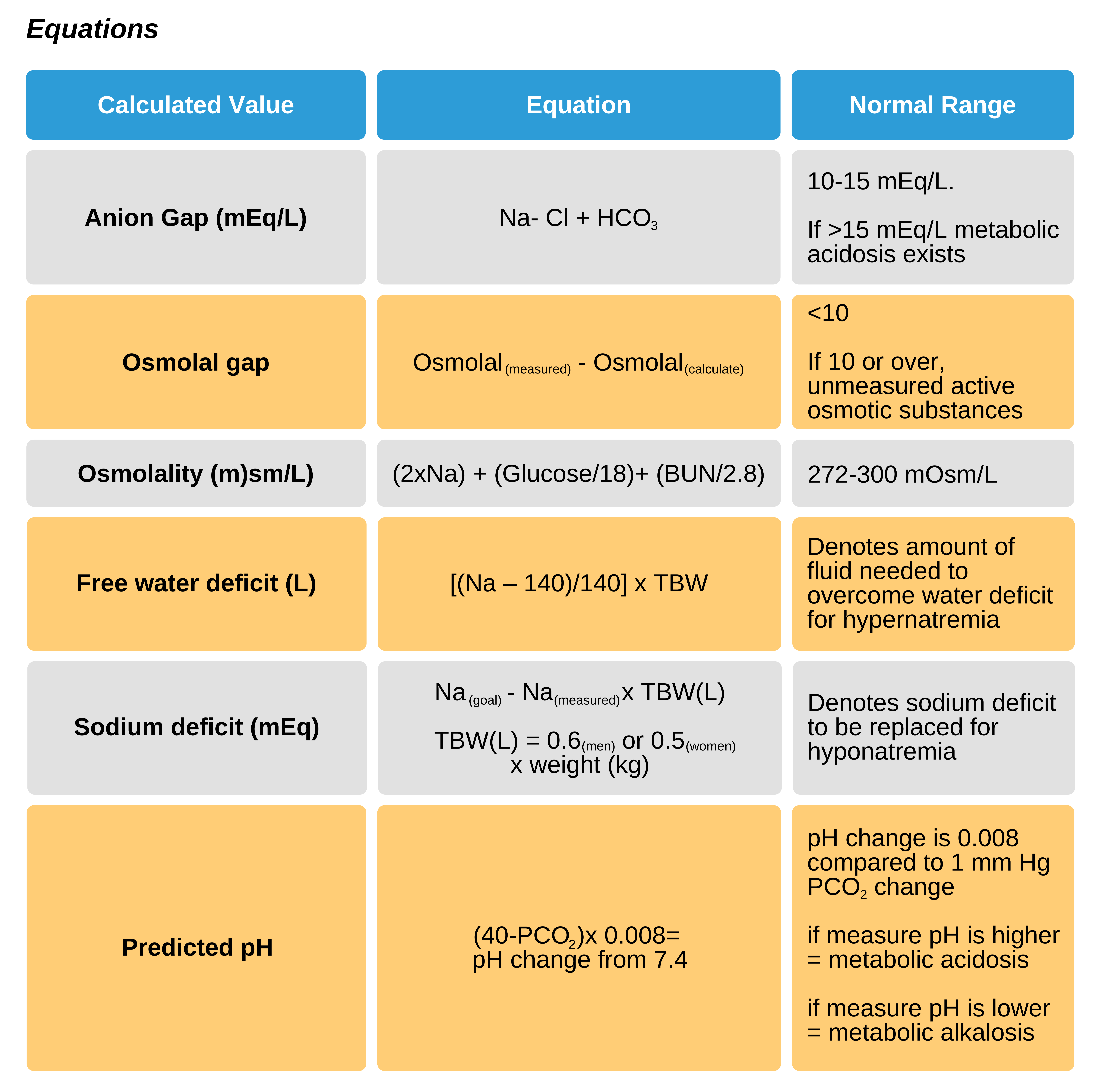Introduction
It is common for patients in neurologic or cardiac emergencies to have electrolyte and acid-base imbalances. Many imbalances may not be identified. A host of acute and chronic conditions can be associated with these imbalances. Common symptoms associated with imbalances include diarrhea, constipation, and emesis as well as altered mental status and weakness. Acute conditions associated with imbalances include multi-drug use, alcohol abuse, surgical intervention, pancreatitis, decreased oral intake, seizures, respiratory failure, diabetic ketoacidosis, and shock states. Chronic conditions associated with imbalances include renal failure, hypertension, diabetes, drug abuse, malnutrition, malnutrition, advanced cancer, immobilization, cirrhosis, and nephrotic syndromes.
Imbalances indicated levels that are outside of the normal range. Be aware that there may be some variation across different laboratory settings and based on patient characteristics.

